QuestionI have a 30 gal tank that I've had running for about ten years now. My problem is that our tap water is hard and creates scales of minerals on the edges of the aquarium no matter how I condition the water prior to using. For a time, I resorted to using distilled water but I understand it is not good for long-term use. Is there any other kind of bottled water that is safe to use, such a Spring water?
AnswerHi Sue,
I certainly can relate! My water is rock hard also, with a pH close to 8, alkalinity and hardness off the charts. It wasn't always this way - I just moved to a house with well water. When I lived in the city limits, I had a pH of 7, and low to moderate alkalinity and hardness.
Here's the thing - fishkeeping because much easier as soon as I moved, because all of the water parameters remained rock steady. I was on vacation for 3 weeks recently and the "sitter" only topped off water, never replaced any - and when I came back the fish were still fine! This would never have been possible before I had the rock hard water. I used to have to change water weekly just to keep the water from yellowing and the fish from becoming distressed. Alkalinity is what keeps pH steady, and a pH that dips down is as stressful to fish as anything else. "pH shock" kills fish almost as often as water quality issues with ammonia and nitrite. Have a look at this article:
http://www.wetwebmedia.com/FWSubWebIndex/fwhardness.htm
It explains what I am saying much better than I can.
The best thing you can do is keep your water topped off so that the ring never forms below the trim of the aquarium. It's best to do this anyway, a little fresh water every other day or so keeps your fish at their best. To remove the ring, if you have a glass aquarium (do NOT try this on acrylic!) you can get a little bit of 2000 grit sandpaper - the finest sandpaper commonly sold. Wet the sandpaper and remove the ring with that. It will not hurt your glass. If you have an acrylic aquarium, you can lower the water level, get a paper towel with distilled white vinegar and soak the area. Then remove it with a soft plastic card - I use my library card since it's flexible. A credit card is likely to scratch acrylic. An amount of vinegar so small as this, will not hurt the freshwater fish in your aquarium.
In short, Sue, using spring water is better than using distilled water but is still not a recommended alternative. Spring water is not as "pure" as distilled water (distilled water should never be used straight, you can combine 50/50 tap and distilled to prepare water for a soft water aquarium) however it still is not as desirable as your plain tap water. Another thing to consider is that having to buy bottled water is going to make you less apt to do frequent partial water changes - it's just not as muss-free as using your own water out of your tap! Your fish won't like the spring water any better than your tap water so it won't be a luxury for them at all.
I am a big believer in using your own tap water whenever you can, so that is what I recommend you do. If you decide to use spring water, you are liable to run into pH fluctuations due to having less alkalinity to buffer your pH. That is the only downside, besides the extra expense and effort of using bottled. If you feel that is worth it to keep your aquarium from building up scale, that is up to you!
I hope that helps, take care.
Nicole
P.S. All you need to add to your water is a dechlorinator that removes chlorine and chloramine. By "conditioning" the water, I imagine you mean you've tried those "pH down" type products - don't use these!
At worst, they stress your livestock by causing pH shock, and at best they do not work, because you can't soften hard water this way, the effect is only temporary. A reverse osmosis unit or cutting the water with distilled is the only way to lower pH. pH cannot be lowered without first eliminating or diluting the carbonate hardness, which is measured with your test kit as GH in ppm (parts per million).

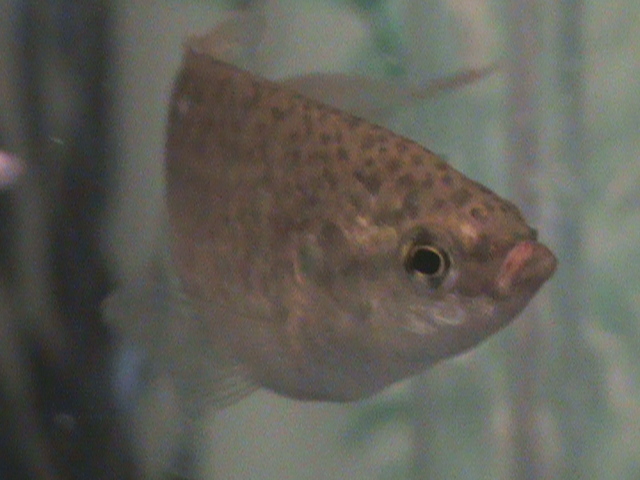 mouth sore on blue paradise fish
QuestionQUESTION: hello! weve had our fish, Jiffy, for
mouth sore on blue paradise fish
QuestionQUESTION: hello! weve had our fish, Jiffy, for
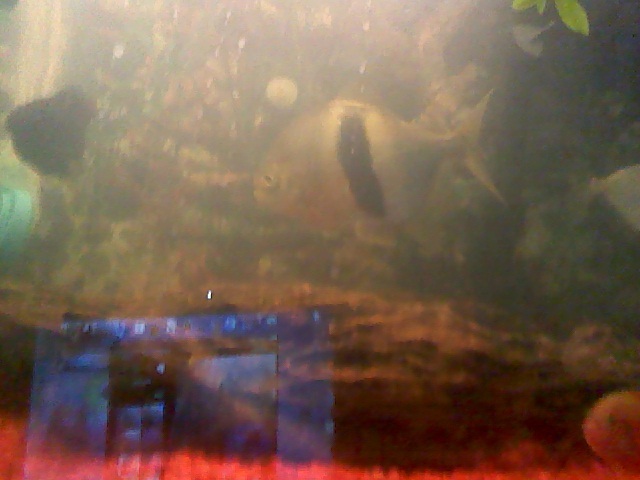 wide bar silver dollar
Questionmy wide bar silver dol
QUESTION: Hello I
wide bar silver dollar
Questionmy wide bar silver dol
QUESTION: Hello I
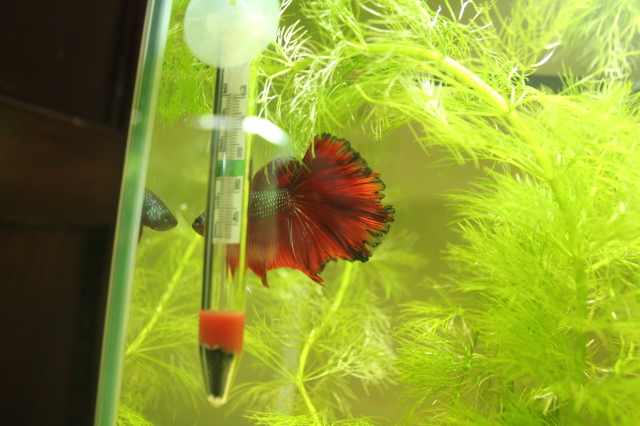 Melafix
QuestionHis back fin
QUESTION: Hi,
Its alex aga
Melafix
QuestionHis back fin
QUESTION: Hi,
Its alex aga
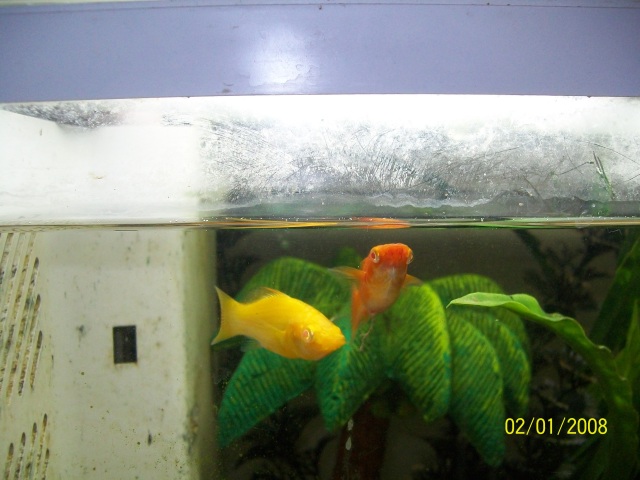 simple question
Question
Mollies
I have 2 orange Mollies. I think one i
simple question
Question
Mollies
I have 2 orange Mollies. I think one i
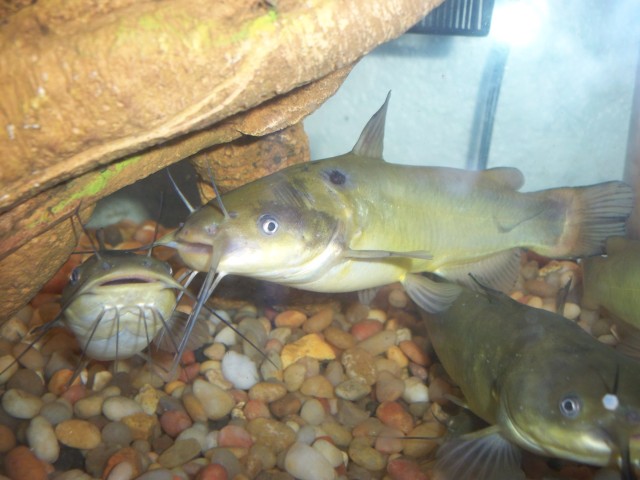 Spots and marks on catfish.
Question
Channel catfish
Hello,
I have 8 channe
Spots and marks on catfish.
Question
Channel catfish
Hello,
I have 8 channe